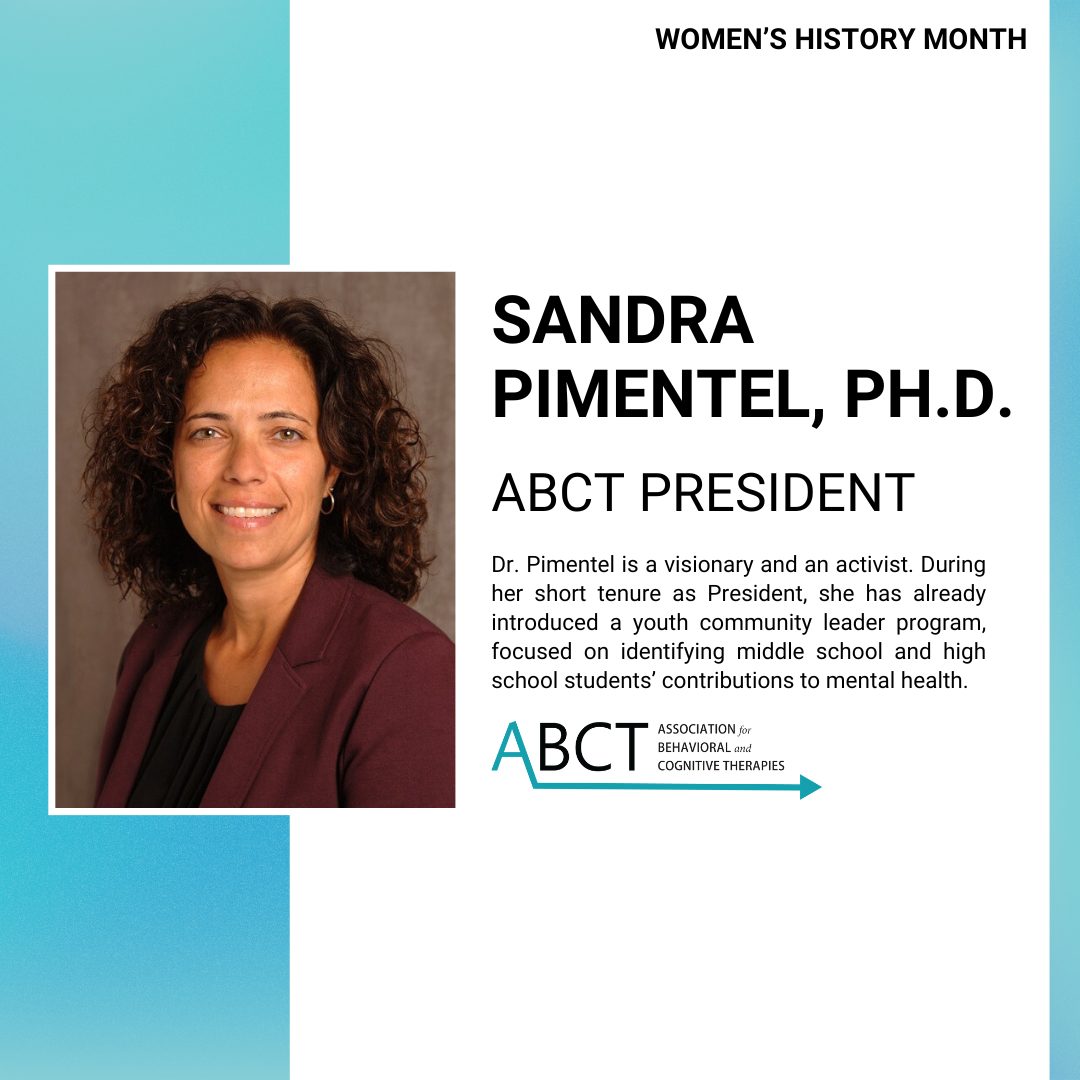Find a CBT Therapist
Search through our directory of local clinicians.
Honoring ABCT President Dr. Sandra Pimentel for Women’s History Month
Sandra Pimentel, Ph.D., ABCT’s current President, is Chief of Child and Adolescent Psychology, Associate Director of Psychology Training, and Associate Professor of Clinical Psychology at Montefiore Medical Center and the Albert Einstein College of Medicine.
Dr. Pimentel is a visionary and an advocate. During her short tenure as President, she has already introduced a youth community leader program, focused on identifying middle school and high school students’ contributions to mental health. The program is aimed at students in the city where ABCT holds its Annual Convention.
Dr. Pimentel is passionate about CBT and is a historian of the field’s pioneers. Currently, she is working to share the work of Mary Cover Jones, whose seminal work marks its 100th anniversary this year. Our upcoming issue of the Behavior Therapist showcases the impact of Dr. Cover Jones’s research in child development.

A few fun facts about Dr. Pimentel:
- She’s a Jersey girl: If you tell her your exit, she’ll know where you live.
- She’s a die-hard Yankees fan.
- She is proud of her Portuguese heritage and knows how to make a few special Portuguese dishes.
- She is focused on DEIAJ in all areas for ABCT.
- She independently raised funds for Central Park’s first monument to real women. The statue, featuring Sojourner Truth, Susan B. Anthony, and Elizabeth Cady Stanton, was unveiled in August 2020.
She is Director of the Anxiety and Mood Program (AMP), a program she launched; and is co-Director of the Becoming an Emerging Adult at Montefiore (BEAM) Program.
Dr. Pimentel has served in a variety of positions within ABCT’s governance. We are delighted to highlight Dr. Pimentel’s vision for ABCT and to share with you a few highlights during Women’s History Month.
